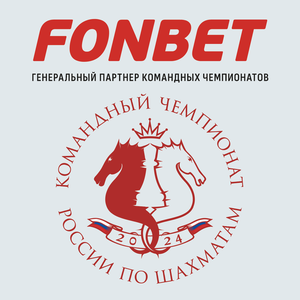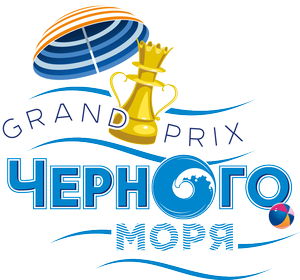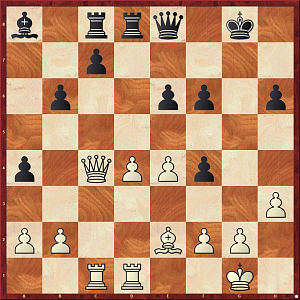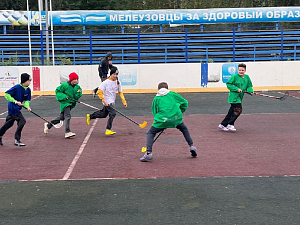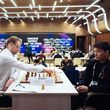A Week of Autumn Chess Feast
Dmitry Kryakvin's impressions from Russian Championships at Zhemchuzhina Hotel on those charming last warm days of the autumn.
Before the start
They say that this time the Russian Personal and Team Blitz and Rapid Championships have brought together almost half of the country's active players! And if we take players of the highest rank, even some Higher Leagues with classical time control might envy the numbers. And the second half of Russian players, those who failed to arrive in Zhemchuzhina on these charming last warm days of the autumn, really missed a lot. So what is so remarkable about the new venue for Russia's major competitions? And why is it worth going there in 2017? Personally, there are three reasons which are the most important for me.1) The fact that Zhemchuzhina was considered to be hotel number one back in the Soviet Union already speaks volumes. Of course, since then they have built lots of giant hotels with a huge number of stars where luxury rooms are so spacious that one could fly around the room on a pillow with an in-built jet engine, but in the 4-star category this chess hotel is still rated very high. Anyway, it's nice to play chess in a place where the entire Soviet elite and many foreign grandmasters had fought at Chigorin Memorials for decades.
2) Zhemchuzhina has a unique system of spas and swimming pools with salty water as well as good rooms, but the most important thing is its difference from Loo and Dagomys. No offence meant. There is no railway with all its "charms" between the hotel and the sea. But there is an amazing promenade taking us from numerous cafes and restaurants to a beautiful sea port.
3) The important thing is that the organizing committee is really doing its best. The competition has been held at Zhemchuzhina for the third time, and a huge progress is obvious in terms of preparation. Do you remember the first season, when Vladimir Bykov, the St. Petersburg team's captain, demanded that a long-awaited rendezvous between him and some meat be organized? Or this spring's line for checking into the hotel? This time the team of technical director, Alexander Tkachev, performed like clockwork and the trip to Zhemchuzhina resembled an all-inclusive hotel vacation.
The last point needs to be brought up separately. Your author has long arrived at a conclusion that the crucial thing for a chess player is a warm welcome. The context might vary, but a friendly smile of the greeting side can always appease both a professional's and an amateur's troubled mind. Not to mention an elderly veteran of the game! The first "cordon" of smiles awaited us at check-in: there was a table next to the reception desk where the arriving players were greeted with open arms by Evgeniya Magdalinskaya and Artem Pugachev who were responsible for accommodation. The second mood-enhancing front was secured at the secretariat during check-in by the accounting department represented by Svetlana Ostrovskaya and Yulia Devyatova and arbiters Elena Polovina and Nadezhda Ilchenko. Some players, particularly seniors, got nervous from time to time. They built up lines of a Gorbachev era scale to get to Svetlana. Indeed, for an elderly person who still remembers Tigran Petrosian, a cashless fee payment, banks and bank details are complex stuff. But each particular case finished with an individual happy end.
It still happens sometimes, though not always, that getting registered at a chess tournament reminds you of a visit to a military enlistment office or a physician of rare specialty. Certain overzealous enthusiasts offer chess players no easy life. When an official looks you up and down suspiciously and then checks every page in your insurance police and all other documents, a thought torments you: has anything actually changed since the Soviet chess school era? But there was no hint of document scrutiny or suspicious examinations at Zhemchuzhina. The registration was quite enjoyable!
The ordeal
After checking in, swimming in the pool, and consuming some delicacies at a lunch buffet (including even some chess theme dishes), chess gurus and their lower-titled opponents began to settle scores at the board. In his turn, Sergey Smagin, the competition's sports director, set the goal of making sure that everyone plays enough games to get tired of chess till the next gathering at Zhemchuzhina. While the 10-round rapid tournament in the personal competition, with its strict schedule of the start of the rounds and two days' workload, was something habitual, the 11 double blitz rounds seemed, on the contrary, a marathon distance. At the closing ceremony, Daniil Dubov dubbed them "survival of the fittest," and it was hard to disagree with him.When 300 people play at a tournament, introducing and checking results during five or six hours is a complex task. Incidentally, the secretariat also had to deal with replacements in the team tournaments. Broadcast debugging also delayed the tournament: all players on the boards with online broadcasting started playing their second game at the same time after an invitation. And in the first of those games there could be a queen endgame or a rook and knight versus rook endgame... And the other 150 participants of the main tournament couldn't leave even for a minute because they risked to be late for the next round. As my club mate Victor Bologan rightly noticed, the brightest moment in that condition of extreme exhaustion was when Arbiter Pavel Tsipris dashed out of the secretariat, rushing to lay and hang out the coveted pairing sheets. Everyone waited for him to appear on the horizon! The organizers should consider improving the 2017 regulation. Maybe 15 to 17 sole rounds will end faster? Or maybe nine double rounds will be enough?
By the way, Vladimir Fedorov and Konstantin Deniapkin had to face the Herculean task of managing the scores at the secretariat. I remember well having asked Alexander Khasin, a grandmaster and an arbiter, at one of the Higher Leagues: "Is Fedorov an arbiter from Novokuznetsk?" Alexander looked at me like Julius Caesar might have looked at the conquered Gauls and, rapping out his words, uttered: "Fedorov is not an arbiter... It's a chess Van Cliburn! He works around the clock. A unique person!" And then he bent down to me and whispered: "With such an assistant, every chief arbiter can feel calm and doesn't have to be distracted by trifles." I'll note that this time Vladimir Staratorzhskiy had a lot of arbiters on his team whom we haven't often seen at high-level competitions, but they handled their task well, and no complaints went to the Appeals Committee. The chief arbiter himself showed an excellent sense of humor and raised bursts of laughter among the participants by phrases like: "If you bring a phone into the play zone, you will suffer a ter-r-rible and dreadful punishment!"
You are probably aware of the tournaments' results from reports by Vladimir Barskij. The rapid event was the most representative of the competitions: the starting list included Dmitry Andreikin, Alexander Morozevich, Vladislav Artemiev, Ivan Popov, Aleksey Dreev, Daniil Dubov, Evgeny Alekseev, Alexander Riazantsev, Ildar Khairullin, Nikita Vitiugov, Boris Savchenko, Alexander Motylev, Denis Khismatullin, Maxim Matlakov, Pavel Ponkratov, Boris Grachev, and other famous chess players. In the women's section, the crème de la crème of the Russian chess was present, except for Valentina Gunina who couldn't take leave from the Basamro festival in Murmansk.
The rating favorite chose the simplest tournament strategy. Dmitry won the first six games, spared Vladislav Artemiev in the seventh, and three further peaceful draws at the finishing line allowed Andreikin to share the first place and become the first by tiebreakers. The Ryazan grandmaster's games are reminiscent of the best games of Fischer when the American was at his peak. Behind the apparent simplicity and clarity of plans there are intricacies that even Vladimir Kramnik might fail to handle!
You've seen his game versus Matlakov in my colleague's report, and I liked the Bocharov versus Andreikin encounter best of all. The numbers in brackets represent the current rapid ratings and, further below, blitz ratings.
Bocharov (2612) – Andreikin (2743)
Rapid, round 4
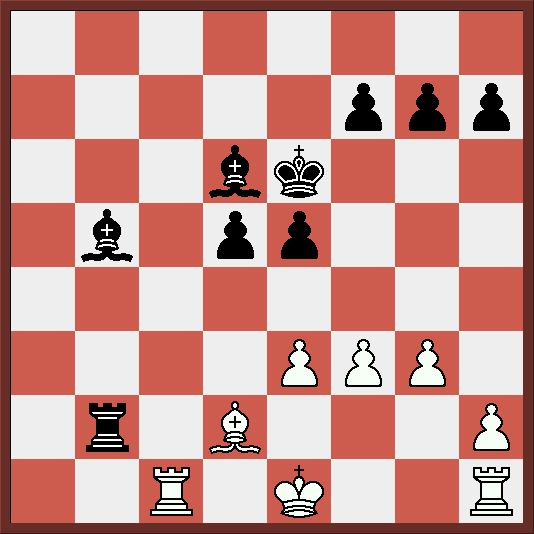
Black has sacrificed an exchange, his bishops are strong, a consolidated army is heading forward. The only thing to be done now is to use the passed pawn as a battering ram. In contrast, Bocharov's rooks are in a tight spot for now.
26…d4 27.exd4 exd4 28.Rg1 Kd5 29.Rg2 Ra2 30.Rf2 Ra8
A tricky move. Now Black's rook can sting the white king both from the left and from the right, and the simple-minded 31.Bf4 is punished at once: 31…Re8+ 32.Kd2 Bb4+ 33.Kc2 Bc4, and there is no setting up a defense now. But the older Dmitry is on his guard.
31.Kd1 Ba4+ 32.Ke1 Bb5 33.Kd1 Bc5 34.Rb1 Ba4+!
After repeating the moves, Black turns to the right plan: the c2 bishop and d3 pawn tandem will escort the black king.
35.Ke1 Bc2 36.Rc1 d3 37.Rg2 Kc4?!
An inaccuracy that might have allowed White to save himself! A preliminary 37...Ra2 is more precise.
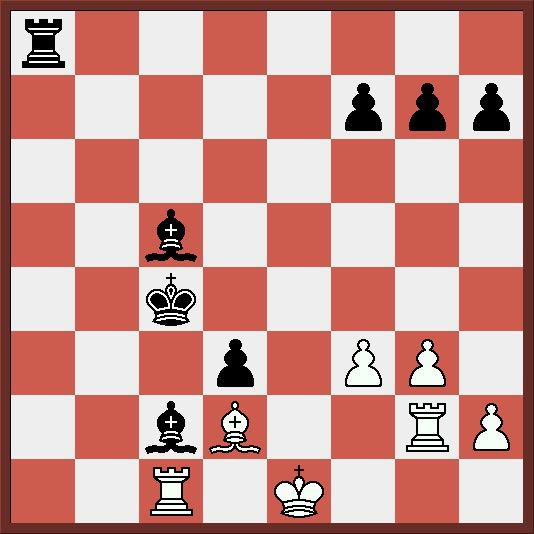
38.g4
Bocharov overlooked the pretty trick 38.Re2! Ba3 39.Re4+ Kb3, and one also has to notice 40.Ra1 Kb2 41.Rxa3! Rxa3 42.Re7 Bb3 43.Rc7! with good chances of saving the game. Sure, not everyone would calculate this even in a classical game, considering that the king is cut off on move 43.
38...Kb3 39.Kf1 Bd4 40.Re1 Bc3 41.Re7 Ra1+ 42.Re1 Bd1!
The last precise move, and Andreikin's bishops tore through the opponent's defenses.
43.Rf2 Bd4 44.Rg2 Bxf3 with a win. A textbook endgame!
Much more heated fight unfolded for the other medals. Morozevich generously shared his points with other participants. Alexander has started playing the Eastern game of go very well now, and he participates in go tournaments successfully, but this has apparently affected the great player's chess prowess. Artemiev was at +5 after the first six rounds, but after a draw with Andreikin, Vladislav, who represents Kazan now, was in for a nasty surprise: he was defeated by Vadim Moiseenko, the competition's discovery.
Artemiev (2701) – Moiseenko (2463)
Rapid, round 8
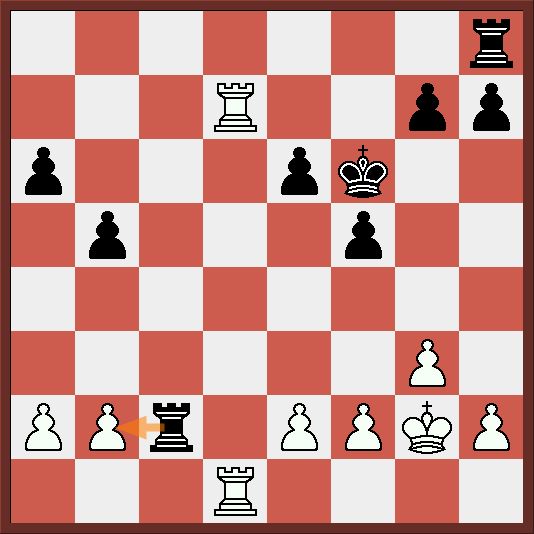
Could there have been an outcome other than a draw had White played the obvious 25.R1d2? I suspect that Vladislav was reluctant to put up with a draw as White, given that his opponent's rating was 250 points lower than his own. And he decided to make a risky move that proved to be a bad one.
25.Ra7? Rxe2 26.Rdd7 Rc8!
An unpleasant surprise. It turns out that the black rook's attack along the second rank is more dangerous than White's attack!
27.Rf7+ Ke5 28.Rac7
Alas, 28.Rxg7 Rcc2 is very bad, so it's necessary to trade off a pair of major pieces.
28...Rxc7 29.Rxc7 Rxb2 30.Rxg7 Rxa2 31.Rxh7 a5, and although Vladislav distracted his opponent resourcefully with the h passer, Vadim brought the point home.
After losing to Khairullin in the second round, Moiseenko won six games in a row, including against Rozum, Khismatullin, Alekseev, Artemiev (Vladislav won the final game "on demand", but still finished fourth). The Vologda master who is now studying and training in St. Petersburg lucked out in a game versus Bologan and was able to hold on to his bronze.
Moiseenko (2528) – Bologan (2569)
Round 10
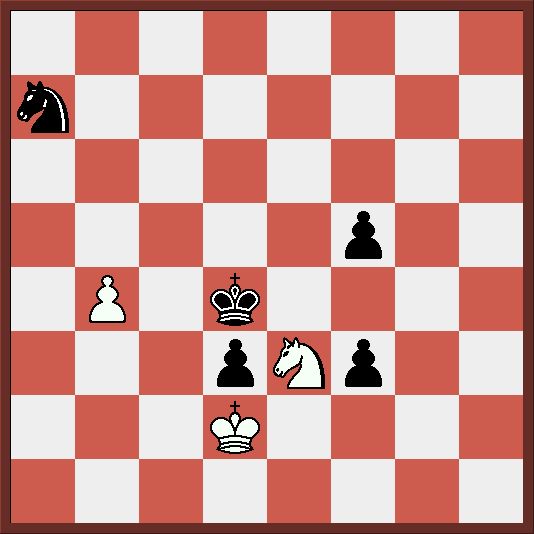
The Moldovan grandmaster who represented Moscow at the Russian Championship lagged behind Moiseenko by half a point and would get a medal himself if he won the game. At some point in the midgame, Viorel captured his opponent's piece, but White spiced up the position and the game transferred to the endgame phase. Which was still won for Black.
57…Ke4?
Played in a bad time trouble... The winning move was 57...f4! 58.Nf5+ (if 58.Nd1 Nb5 59.Nf2 Nd6 60.Nxd3 Ne4+ there are no issues either) 58...Ke4 59.Nd6+ Kd5 – Black's "problem pawns" march through to queens, or else the knight is lost. The poor move with the king enables White to destroy the d3-pawn.
58.Nd1 Nc6 59.Nf2+ Kf4 60.Nxd3+ Kg3 61.b5?
White should have blocked the passer at once - 61.Ke1. The exhausted opponents overlooked a winning distraction in time trouble.
61...Na5?
Another medal-winning plan was 61...Ne5! 62.b6 (or 62.Nxe5 f2) 62...Nc4+ 63.Ke1 Nxb6 64.Kf1 Nc4, and here "Botvinnik's rule" works: if the pawn endgame is won, the knight endgame is won too.
62.Ke1 Nc4 63.Kf1 Ne3+ 64.Kg1 Nd5 65.Kf1 Nb6 66.Kg1 Nc4 67.Kf1 Nb6 68.Kg1 Nd5 Draw.
Another rapid tournament hero wasn't smiled upon by fortune at the finishing line. Daniil Yuffa, a newly-qualified grandmaster from Tyumen, defeated Vitiugov, Popov and Riazantsev while having draws with Artemiev, Alekseev, Andreikin, and Dreev. Before the final round, he had chances to win a medal with one of the best Buchholz scores at the tournament.
Yuffa (2566) – Vitiugov (2677)
Rapid, Round 3
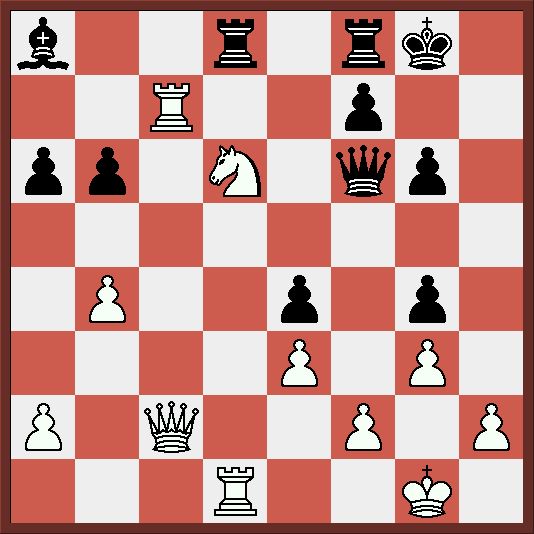
Thanks to the strong knight on d6, White dominates, and the simple 32.Qd2 Qe6 33.a3 Rd7 34.Rxd7 Qxd7 35.Nc4 dooms his opponent to a grueling defense. But Daniil overlooked 32.Nc8? and stopped dead in horror seeing the killing attack 32...Rd3! The rook can't be captured because Black's "bad" bishop will now create a mating battery for the white king. Nikita thought, grabbed the rook with his hand but, fortunately for White, the missile missed the target.
32...Rxd1+? 33.Qxd1 Rd8 34.Qxg4 Qf3! 35.Qxf3 exf3 36.h4
The powerful f3-pawn provided sufficient counterplay to Black, so it was about time to end the game peacefully: 36...Rd1+ 37.Kh2 Rd2 38.Kg1 Rd1+. The St. Petersburg grandmaster's attempt to strengthen his position proved to be a bad one.
36…Be4? 37.g4
Now the white king has a safe haven on g3, and the black bishop is attacked by the white knight.
37…b5
It's too late to play 37...Rd1+ 38.Kh2 Rf1 39.Kg3 Rg1+ 40.Kf4.
38.Kh2 Rd2 39.Kg3 Rxa2 40.Nd6 Bd5
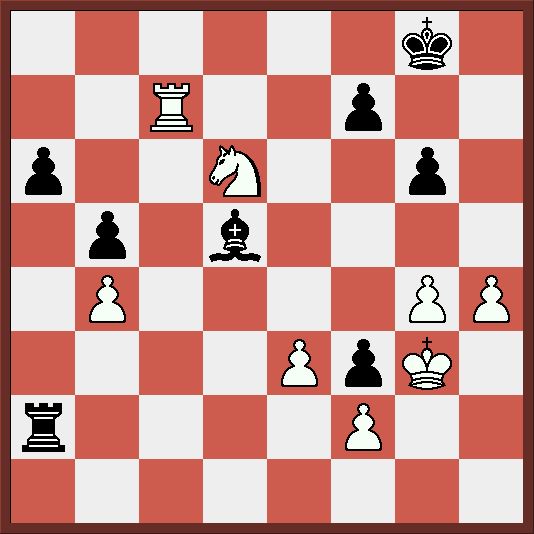
41.Rc8+ Kh7
Black won back the pawn, but to his misfortune, the black king now risks to be caught in a mating net: 41...Kg7 42.Ne8+ Kf8 43.Nf6+.
42.Ne8! Be6 43.Ra8 g5
The line 43...Rc2 44.g5 Bc8 45.Ra7 Kg8 46.Nd6 Be6 47.Rxa6 is hopeless. To untangle his position, Vitiugov gave away a pawn, then another, but he didn't have the time to push the passed pawn on f3 forward.
44.hxg5 Kg6 45.Kf4 f6 46.gxf6 Rxf2 47.Rxa6 Bf7
Too many pawns are lacking after 47...Bd7 48.Nd6 Rc2 49.Kxf3 Kxf6 50.Nxb5+.
48.Nd6 Be6 49.Ne4 Black resigned.
Vladimir Barsky has already commentated on the fine checkmate with a queen sacrifice against Riazantsev, but it is also worth noting that had Ivan Popov seen the devilish trap in his game versus Daniil and found the strength to abstain from capturing the g3-bishop, the chess players' tournament fates might have been different.
In a decisive encounter of two Daniils, Dubov performed a cunning idea in a variation that is gaining popularity and that had been prepared for the same opponent back at the Higher League in Kolomna.
Dubov (2690) – Yuffa (2566)
Rapid, round 10
1.e4 c6 2.d4 d5 3.e5 c5 4.dxc5 Nc6 5.a3 Nxe5 6.Bb5+
The usual moves are 6.b4 g6 7.Bb5+. Apparently, the check on the sixth move forces Black to take extreme measures and sacrifice a pawn with 6...Bd7, but a field test is needed here.
6...Nc6 7.b4 Nf6 8.Bb2 g6
If 8...e6 9.Nf3 Be7 10.0–0 0–0 11.Nbd2 Bd7 (there's an important resource, 11...a5 12.Qb1! without blocking the bishop on b2) 12.Bd3. Hovhannisyan defeated Kostin here in 2013, and it's strange that Bodnaruk alone followed in his footsteps in a game versus Girya (Anastasia had a trade-off on c6 on move 11, which is not so strong).
Yuffa tried to neutralize the bishop b2, but with a series of strong moves
9.c4! Be6 10.Nf3 Bg7 11.Ng5! Dubov gained an edge and then converted it into a win.
The Muscovite has recently been playing very interesting chess: he sacrifices a lot and has an aggressive and beautiful style. He might even have overdone it in the Higher League. As for the autumn Sochi, I liked the following game by Daniil.
Dubov (2690) – Zakhartsov (2463)
Rapid, round 2
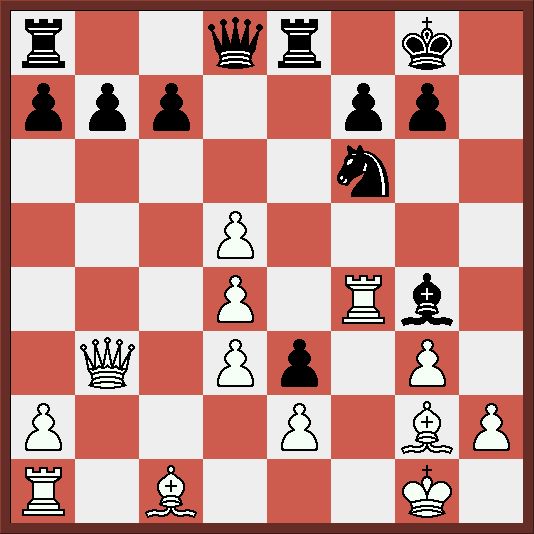
White is OK in this very sharp "Kasparov-Karpov" variation, and doubling major pieces along the f-line, 16.Qd1 Bh5 17.Qf1 Nxd5 18.Rf5, would have retained all the pluses of his position. But this is too simple for the present Dubov!
16.Re4!?!?
Suddenly the Muscovite sacrifices an exchange for an opportunity to obtain a powerful pawn group. Vladimir is a cold-blooded player and won't be intimidated with surprises. And initially, Zakhartsov played very well.
16...Nxe4 17.dxe4 c6!
The computer insists on 17...Bxe2 18.Bxe3 b5, but the humanly correct plan is to play against the white center.
18.Bxe3 cxd5 19.e5 Be6
Capturing on b7 would have given White a compensation for the exchange, but this would essentially have been a struggle for a draw. Therefore, through hardships to the stars...
20.Rc1?! Qd7 21.Bg5 Rac8 22.Rf1 Rc4 23.Qe3 Qa4
As White mustered his forces on the kingside, Zakhartsov surrounded the d4-pawn. A moment of truth came.
24.Bf6! Rxd4 25.h3!
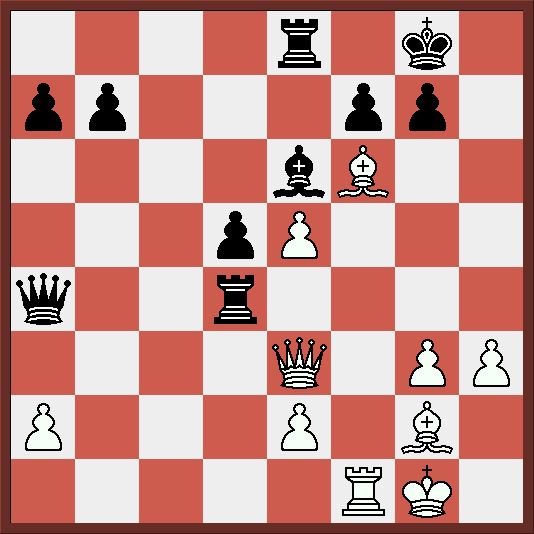
25...Bxh3??
Given the time trouble, Black had plenty of reasons to lose his bearings. 25...gxf6 26.exf6 Rc8 27.Qh6 Rg4 28.hxg4 Qxg4 29.Rf3 is dubious, but he also had the king escapade 25...Kf8! in his disposal (the rook is ready to let his majesty pass via e8 and d7), as well as the solid 25...Qb4 26.Qg5 Qf8.
It's possible that Vladimir calculated the line 26.Bxh3 gxf6 27.Rxf6 Rd1+ 28.Kh2 Qd4 29.Qg5+ Kf8 30.Rxf7 with a draw, but the reality proved to be harsher.
26.Bxg7! Kxg7
There's no time for 26...Bxg2 27.Qh6.
27.Qg5+ Kf8 28.Qh6+ Kg8 29.Qg5+ Kf8 30.Bxh3 Qc6 31.Qh5 Qc7, and the game ended beautifully: 32.Qh8+ Ke7 33.Rxf7+! Black resigned.
The Russian Rapid Championship (Men). 1. Andreikin, 2. Dubov, 3. Moiseenko – 8 out of 10 each, 4-8. Artemiev, Riazantsev, Dreev, Bologan, Savchenko – 7.5 each.
Thanks to the tiebreakers, the 9th and 10th places went to Yuffa and another troublemaker, Sergei Zablotsky, who had 7 points out of 10 without draws (!) while defeating Grachev, Savchenko, Matlakov, Chigaev, and Khairullin. Artemiev alone was able to stop him in the final round.
In the women's section, Alexandra Kosteniuk defeated Aleksandra Goryachkina by tiebreakers: both players scored 8 points out of 10. Kosteniuk, whose games were partially covered by Vladimir Barskij, reminded that she had won her first Russian Rapid Championship two decades ago! I think Kosteniuk could have won it more often, but before the agreement with Zhemchuzhina this tournament was only held episodically. Natalija Pogonina, another player from the Russian national team, is on the third place with 7.5 points.
The Russian Rapid Championship (women). 1. Kosteniuk, 2. Goryachkina – 8 out of 10 each, 3. Pogonina – 7.5, 4-7. Charochkina, Vasilevich, Kovanova, Drozdova – 7 each.
It's paramount that a huge number of special prizes were awarded at the tournaments. Prizes for the best boys and girls from various age groups, awards for winners in different categories. The faces of those who got prizes in special nominations shone with greater joy than the faces of the prize winners in overall standings who were exhausted in the battle! As I had a walk in the evening, I came across one of the leaders of regional federations who dashed together with his kid along the moonlit Sochi embankment. "Can you imagine? We thought he failed to win the prize... But the rival chose the youth prize! We dropped on the second floor quite by chance. And then Ostrovskaya tells us: sign the paper that you have received the amount. Thirty thousand roubles! No, you understand, that's 30 thousand!" And the boy looked as if he had won a whole million in a lottery.
So, dear readers, please don't think that you have no chances of winning any prizes at Zhemchuzhina and that everything will be won by Andreikin and Dubov. Study the regulation attentively and keep track of your rating dynamics... And then I might see you on the moonlit embankment in 2017 too!
The ordeal for the strong in spirit
22 blitz rounds is a real trial. A quarter of the marathon in Pardubice and half a marathon at the St. Petersburg Summer. Given the breaks for the drawing of lots, that proved to be quite an ordeal! Not everyone survived it. Afer five double rounds, my club mate Pavel Ponkratov shot ahead at a hurricane speed: he scored 9.5 out of 10 points and defeated Dubov 2-0 and Morozevich 1.5-0.5!
When Ponkratov was the Ural Federal District's youngest grandmaster, he could secure a victory at tournaments after such a spectacular start. But the second part of the distance showed that Russia's rapid chess champion of 2015 and Vishy Anand's nemesis already has some very strong competitors. The Chelyabinsk grandmaster finished the tournament ranked only 34th, even though he was among the top three just five rounds before the end.
The one who should be pleased with such a marathon distance is Alexander Morozevich. The tournament didn't go well for one of the best blitz player in history: Alexander was beaten by the "freebooter" from the Urals, then he simply missed one of the two games in his match versus Denis Khismatullin, and in a while he was defeated in a two-game match against Maksim Chigaev. But at the finish Morozevich showed that he was Morozevich! A hard-fought 4 out of 4, and the Terminator took a bronze.
Artemiev proved to be beyond competition, taking an impressive blitz revenge on Moiseenko for the loss in rapid chess. The terror of all online players nicknamed SibElephant (Siberian Elephant!) and the holder of a blitz rating of just below 2800 took the top line once again, bypassing the second-place winner, Dmitry Andreikin, by 2.5 points. Vladislav scored wins in the mini-matches versus Dreev, Ponkratov, Matlakov, Andreikin, Khismatullin, Savchenko, and Vitiugov. Only Dubov and Kirill Bryzgalin, a legendary blitz player from Sochi, were able to get the honorable score of 1-1 against the winner. Dmitry Andreikin took the second place, finishing with the same score as Morozevich and bypassing just by half a point an impressive group of strong grandmasters, including Savchenko, Dubov, Khairullin, Riazantsev, Alekseev, Popov and Grachev.
It's very hard to commentate blitz. Vasily Smyslov's famous phrase probably applies to it: "One needs to see forks, checks, and pins."
Artemiev (2781) – Dreev (2592)
Blitz, round 8
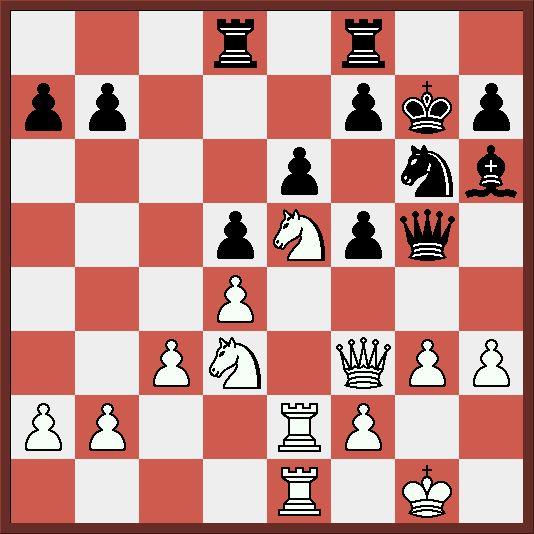
24…f6? 25.Nxg6 hxg6 26.Nf4 with a win.
Khismatullin (2604) – Artemiev (2781)
Blitz, round 15
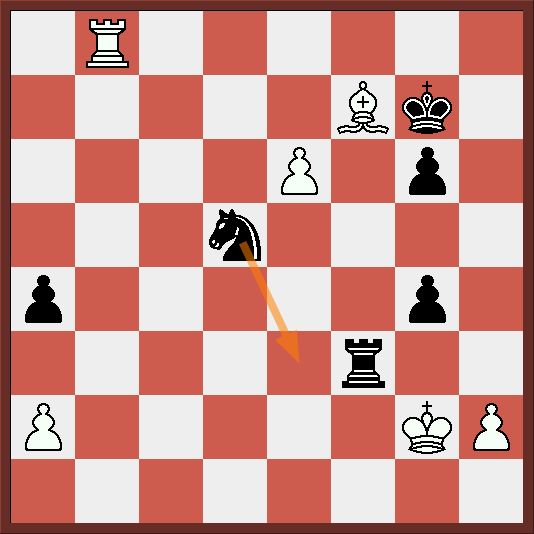
The strong e6-pawn gives White good chances of salvation after 46.Kg1 Ne3 47.Rb1, but…
46.Rb4?
Vladislav didn't capture the rook, of course.
46...Ne3+ with checkmate.
Vitiugov (2717) – Artemiev (2781)
Blitz, round 22
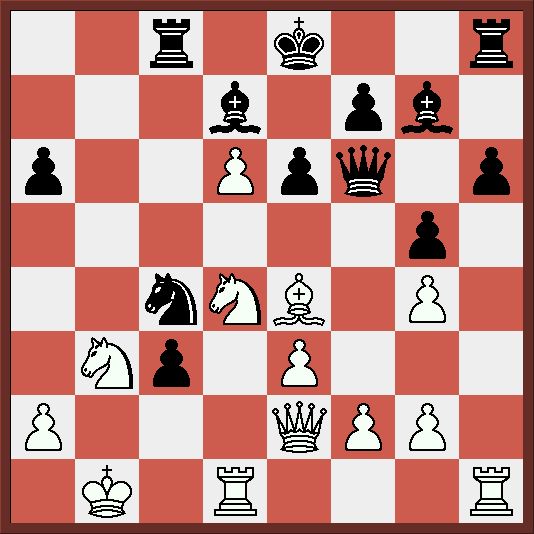
28...c2+! 29.Kxc2
There is neither 29.Qxc2 Na3+, nor 29.Nxc2 Qb2#.
29...Nxe3+ 30.Kb1 Nxd1 31.Rxd1 0–0 32.Bd3 a5 with a quick win. Here I apologize to Nikita for having accidentally included a second of his Sochi losses into this review.
It's time the hero of Omsk and Kazan matched strength with Magnus at the Qatar World Championship. Always considering that Sergey Karjakin should do this earlier.
Russian Blitz Championship (men). 1. Artemiev – 18 out of 22, 2. Andreikin, 3. Morozevich – 15.5 each, 4-10. Savchenko, Dubov, Khairullin, Riazantsev, Alekseev, Popov, Grachev – 15 each.
In the women's blitz tournament, a small sensation happened that was very pleasant for me. The third place was taken by my wife Elena Tomilova who fell behind Anastasia Bodnaruk and Natalija Pogonina but came ahead of Charochkina and Kosteniuk.
Any chess successes of the wife is now very flattering for the husband. First, you can announce on Tweeter: "Even my wife knew this move!" Second, Sergei Rublevsky, the Russian female national team's senior coach, strongly insists on the efficiency of collaboration of a coach and a player if they are husband and wife. Even in the harsh conditions of the forthcoming world championship in Iran. I have to admit, however, that I am often negligent in such duties, and most of the training of the player who only lost two games out of 22 was provided by grandmaster Roman Ovechkin.
Bodnaruk (2386) – Tomilova (2223)
Blitz, round 6
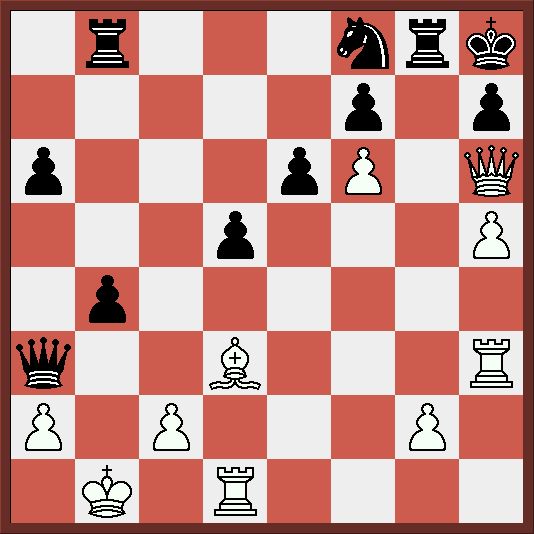
Anastasia was blitzing brilliantly in Sochi: a personal victory (6 won games at the finish!) and 9.5 out of 10 points in the team blitz! Even now, Bodnaruk could have finished the attack against the black king beautifully. I think that even Mikhail Tal would have been pleased with such an ending: 26.Rg3!! Rxg3 27.Bg6!! with inevitable checkmate.
But the grandmaster fell for winning the queen, and Black suddenly had compensation.
26.Bxh7? Nxh7 27.Rxa3 bxa3+ 28.Kc1 Rxg2 29.Rd3?!
It was worth destroying the root of all evil at once: 29.Qe3 Ng5 30.Qxa3 Ne4, but even here all the three outcomes are possible.
29...Rc8 30.c3 Rcg8 31.c4?
A fine geometry could have kept this intense battle: 31.Qf4! Rxa2 32.Rg3!, whereas 31.Rd2 R2g3 32.Kc2 Rb8 is dangerous. Now White loses her queen.
31...Rxa2 32.Qe3 Rg1+! 33.Qxg1 Ra1+, and Black wins.
The Russian Women's Championship (blitz). 1. Bodnaruk – 17 out of 22, 2. Pogonina – 15.5, 3. Tomilova, 4. Charochkina, 5. Kosteniuk – 15 each, 6. Goryachkina – 14.5.
Natalija Pogonina and Dmitry Andreikin proved their worth in both nominations.
A fantastic stability given such (!) competition.
Team Championships in Sochi
After the personal championships were over, the time for team tournaments came. All in all, the Zhemchuzhina project fully changed the club movement in Russia. While team competitions used to be only for the elite, these tournaments are seeing ever more self-formed teams that come to Sochi AT THEIR OWN EXPENSE! One grandmaster just shrugged his shoulders saying: "Of course people love chess in Russia. But I didn't know they love it so much!"
The favorites in the men's team competitions were, of course, the Moscow team: Dubov, Morozevich, Dreev, Popov and Motylev (with an average rating of 2698)! No one could fight such an armada, neither in blitz nor in rapid chess. At the closing, Evgeny Sveshnikov noted that it was Moscow and Moscow Region teams (men, women, seniors) who had dominated in most of the events, while it was necessary to support Russia's other regions and revive team championships among Russia's different constituent entities (like the Chigorin Cup in Soviet time). The winners smiled condescendingly, like one of Gazprom's leaders at a recent conference on Russia's economic development during the speech of a student who argued with ardor that Russia's mineral resources belonged to its people.
Moscow did have competitors, however, and strong ones. The Bulbosaurs (Chigaev, Predke, Yuffa, Lugovskoy, the average rating of 2638) were strengthened by none other than Vladimir Fedoseev who had missed the personal tournaments in order to prepare for the forthcoming Superfinal.
Just as dangerous was Kazan's Ladya (Artemiev, Timofeev, Sharafiev, Hasangatin, Ibragimov, the average rating of 2638 as well), strengthened by Gata Kamsky himself, who had been aiding Vera Nebolsina during the individual competitions. Number four was Malakhit from Yekaterinburg (Bologan, Ponkratov, Khismatullin, Pridorozhni, Kryakvin, Shariyazdanov; 2630).
In general, all of the top ten teams were strong: St. Petersburg's SDYUSSHOR (Alekseev, Romanov, Levin, Usmanov), Dasmar (Savchenko, Bocharov, Zablotsky, Evdokimov ― the captain admitted at the closure that the team's name was composed of the first letters of the players' names), the Krasnodar Region (Tregubov, Kosteniuk, Bryzgalin, Oganian), the Vologda Region (Rakhmanov, Rozum, Moiseenko, Gochelashvili), and Spartak (Moskalenko, Paravyan, Matinian, Vastrukhin). As the tournament showed, all the teams, even lower-rated, were able to deliver a fight against the favorites.
The rating favorites had a pretty challenging schedule at the beginning: 2-2 versus Vologda, but then they pulled out a victory versus Bulbosaurs, Kazan, and Malakhit, and afterwards they could no longer be stopped. The scores 3-1 versus Dasmar and 3.5-0.5 versus Krasnodar left no intrigue in the match. You already saw Motylev's crucial win against Lugovskoy and Morozevich's against Kamsky in other reports, so let's focus on the team's young leader.
Savchenko, Dasmar (2676) – Dubov, ShSM Moscow (2690)
Team rapid, round 6
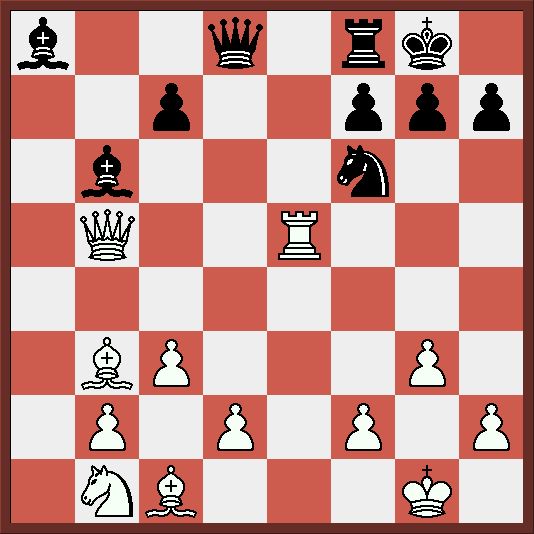
Boris has had a square meal of two pawns, but has lagged behind with piece development. This is not a crime, but an immediate punishment followed.
17…Bxf2+! 18.Kxf2 Ng4+ 19.Kg1 Nxe5 20.Qxe5 Qd3!, and 21.Na3 Qf3 results in checkmate. Savchenko half-heartedly chose 21.Qf4 Qxb1, but Black won easily there as well.
A combat worthy of Homer's pen unfolded for the remaining places under the Sun. The Bulbosaurs performed well, but Dasmar stopped their progress, and in the final battle Fedoseev and his team faced Ladya.
Timofeev, Ladya (2566) – Predke, Bulbosaurs (2618)
Team rapid, round 9
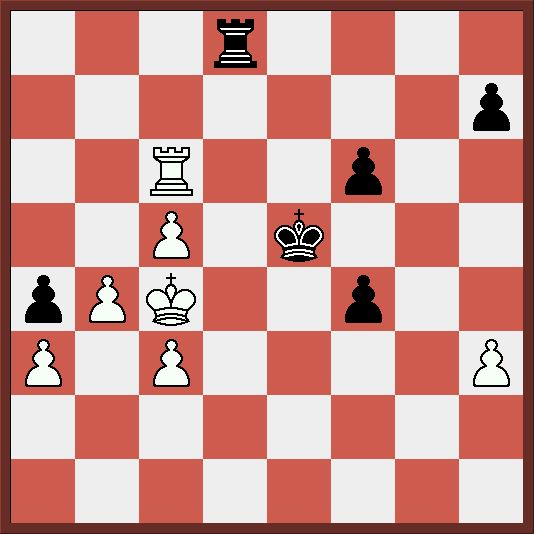
The teams exchanged blows: Yuffa beat Hasangatin, but Kamsky backlashed by defeating Chigaev, and the decisive game was played on the third board. Black is a pawn down, but how can its passer be stopped? The solution is simple: offer a transition to a pawn endgame that is not acceptable for Black.
42.Rd6! Rg8 43.Rd1 f3 44.Re1+ Kf4 45.c6 f2 46.Rf1 Ke3 47.b5
The connected pawns are stronger and more maneuverable than the doubled pawns, which quickly determines the outcome of the game.
47…Ke2 48.Rxf2+ Kxf2 49.b6 f5 50.b7 Rb8 51.c7 Rxb7 52.c8Q, and White won.
In its turn, Malakhit was unable to outplay the Kuban team in the final encounter: 2-2. Some vicious tongues claimed that it happened because Pavel Ponkratov lost to Alexandra Kosteniuk a classical endgame with two bishops where he was the stronger side. As a result, Spartak finished among the top three together with the Kazan team, which defeated the Krasnoyarsk team sensationally. Oleg Vastrukhin dubbed "the Ace", an almost legendary figure by now, thrashed his opponent from the bronze-winning team ferociously, while the second win in the match was won by David Paravyan.
Paravyan, Spartak (2500) – Bocharov, Dasmar (2612)
Team rapid, round 9
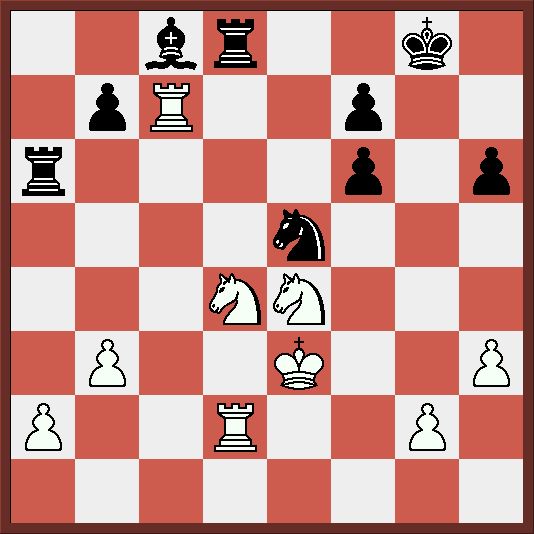
A move worthy of a medal: 29.Ne6! Bxe6 30.Rxd8+ Kg7 31.Nc5, and after Spartak's "joker" finished Alexander Evdokimov off, "the amateur team" celebrated its success in the company of pros. As the guys noted, their team was named after the gladiator and doesn't have anything to do with the football players Karpin and Fedun: Nikita doesn't care for football, David is interested in foreign leagues, while Oleg keeps rooting for Kuban full-heartedly.
Russia's Rapid Team Championship (Men). 1. Moscow ShSM team - 16 points out of 18 (Dubov - 4.5 out of 7, Morozevich – 6 out of 8, Dreev – 5 out of 7, Popov – 5.5 out of 8, Motylev – 4.5 out of 6), 2. Rook (Tatarstan) – 13 (Artemiev – 6.5 out of 9, Kamsky – 6.5 out of 9, Timofeev – 5 out of 9, Sharafiev – 3 out of 6, Khasangatin – 1 out of 3), 3. Spartak (Moskalenko – 4 out of 9, Paravyan – 6.5 out of 9, Matinian – 6 out of 9, Vastrukhin – 6 out of 9), 4. Vologda Region, 5. Dasmar, 6. Malakhit ― 6 each.
In the blitz tournament, Nukhim Rashkovsky's disciples put all their resources into the game. Malakhit switched boards and threw in 6 players to race over the impressive distance of 15 rounds: Kryakvin and, in the first rounds, Captain Shariyazdanov left the bench to join the fray. The main striking force was the mighty threesome Khismatullin ― Pridorozhni ― Bologan, and Aleksei won all the games except for only three (!!!), where he had draws. Throughout the tournament, Malakhit tried to catch up with the mighty Moscow, which played blitz without Dreev and therefore gave chances to competition. But the pursuers were never able to make up for the lag resulting from a defeat in the head-to-head encounter. And they failed in that head-to-head match even despite the miracle performed by its main attacker.
Morozevich, ShSM Moscow (2669) – Pridorozhni, Malakhit (2611)
Team blitz, round 6
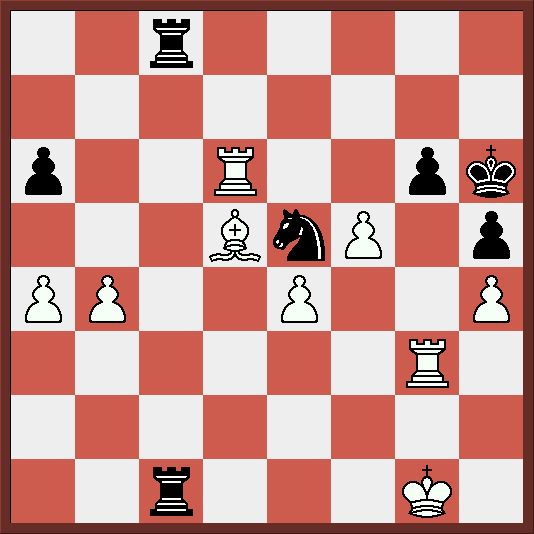
Where should the king hide? If 46.Kf2! Ng4+ (46...R8c2+ 47.Ke3 Rc3+ 48.Kf4 is hopeless) 47.Rxg4 hxg4 48.Rxg6+ Kh5 49.Ke3 Alexander, who had had an edge during the entire game, still had good chances for a win, but now the Muscovite got a checkmate in the center of the board. Playing with a couple of seconds left is a dreadful thing.
46.Kh2?? R8c2+ 47.Rg2 Ng4+ 48.Kg3 Rc3+ 49.Kf4 Rf1+ 0–1
The third place went to Dasmar. After thrashing Muscovites in the third round with a score of 3.5-0.5, the team of regional grandmasters so dear to Sveshnikov's heart could aspire for an even higher place, but was beaten by both the Bulbosaurs and Kazan, as well as by the St. Petersburg team.
The blitz players from Crimea, CrimeaStar, got the most discouraging 7th place, the first where no prizes are awarded, but it can take pride in defeating Spartak, Yamal and Ladya and having a draw versus Moscow. And that considering that among the four ― Kurbedinov, Iljin, Derjabin, Papenin ― only Timofey Iljin and Ilja Derjabin had a rating of around 2400!
Russia's Blitz Team Championship (Men). 1. ShSM Moscow ― 26 points out of 30 (Dubov – 10.5 out of 15, Morozevich ― 10 out 15, Popov – 12 out of 15, Motylev – 10.5 out of 15), 2. Malakhit (Sverdlovsk Region) ― 25 (Ponkratov – 8.5 out of 14, Khismatullin – 10.5 out of 14, Pridorozhni – 11.5 out of 13, Bologan – 10 out of 12, Kryakvin – 4.5 out of 6, Shariyazdanov – 1 out of 1), 3. Dasmar (Krasnoyarsk Region) – 24 (Savchenko – 9 out of 15, Bocharov – 9.5 out of 15, Evdokimov – 8 out of 13, Zablotsky – 7 out of 11, Gochelashvili – 4.5 out of 6), 4. The Bulbosaurs (Samara Region), 5. Ladya ― 23 each, 6. SDYuSShOR ShSh (St. Petersburg) – 22.
Take care of women
I apologize for not having seniors' matches in my report. Seniors have their own brilliant chroniclers, and besides, the older generation hasn't yet finished their event: personal competitions are underway at the moment. But women do need a separate discussion. The Russian Chess Federation has done fair ladies a major favor this year: instead of three team prizes in 2015, there were five in team competitions this year. But there were still few teams: seven rapid and six blitz teams. Of course, the world's championship in Khanty-Mansiysk coincided with this event very unluckily... Of all the young Russians, only Aleksandra Maltsevskaya found the strength and courage to come from there. But... Why was there no local, Krasnodar and Sochi, team at the tournament? Given the Krasnodar Region's chess traditions? Alexandra Goriachkina walked lonely around the room... Could it happen that SUCH a chess player wasn't invited by any team?
The prizes were contested by the regular Russian championship teams ― the Moscow team, Yugra, Ladya, Crimea's Tavrida, a Tyumen team brought together from parts of Boavishta, Belorechensk, Donchanka, and VIVO (meaning vivid, strong, and effective in Latin). The trip to Sochi for the St. Petersburg team with Rostov legionnaires was paid for by Valery Zolotukhin, a good guy and a new oligarch in the sour milk ferment industry. If five more persons like Valery could have been found, this would have been a terrific championship!
Nevertheless, even such a compact tournament had its own intrigue. The online broadcast crashed during the blitz, so we were left without these games' texts. Furthermore, a conflict almost flared up at the tournament when two rounds before the end of the blitz event Pavel Lobach, Russia's distinguished coach who was aiding Yugra, demanded a 15-minute break to get familiarized with the teams' positions in the standings. "Excuse me, but no break whatsoever is mentioned in the regulation!" objected Anastasia Bodnaruk, VIVO's first board, confidently. "You can leave, we will start your clocks!" added the Kazan team's Karina Ambartsumova from the opposite flank.
The arbiter of the women's section, Lubov Gordyk, had to toil hard to find a peaceful solution. Incidentally, it was those three teams that took the medals in blitz: 1. VIVO (St. Petersburg) ― 14 out 20 (Bodnaruk ― 9.5 out of 10, Ovod ― 3.5 out of 10, Travkina ― 3.5 out of 10, Maltsevskaya ― 6.5 out of 10), 2. Yugra (Khanty-Mansiysk Autonomous Region) ― 13 (Pogonina – 5 out of 10, Mkrtchian – 4.5 out of 10, Nechaeva – 6.5 out of 10, Kovanova – 7.5 out of 10), 3. Ladya (Tatarstan) – 11 (Galliamova – 7 out of 10, Ambartsumova – 7.5 out of 10, Nebolsina – 4.5 out of 10, Belova – 3 out of 6, Markelova – 0.5 out of 4), 4. ShSM Moscow – 10, 5. Tyumen – 7, 6. Tavrida (Crimea) – 5.
In the rapid event, Moscow performed much better, with support from "the female Rubinstein", Anna Gvanceladze, who saved all the worse endgames and won all the better ones. Before the final rounds, four teams aspired for the pedestal, and it was thanks to "Rubinstein's" efforts that ShSM was able to draw with Tyumen. The final battle between Yugra and VIVO was coming, and the Northern players (with some infusion of Southern blood) needed to win there to displace Lobach's trainees from the first place.
Pogonina vs. Bodnaruk and Ovod vs. Mkrtchian games ended in a draw, and on the last board Dina Belenkaya grabbed Baira Kovanova's pawns with a somewhat sadistic expression on her face. And Nechaeva managed to win a piece versus Travkina, but then miracles began.
Nechaeva (2425) – Travkina (2237)
Team rapid, round 7
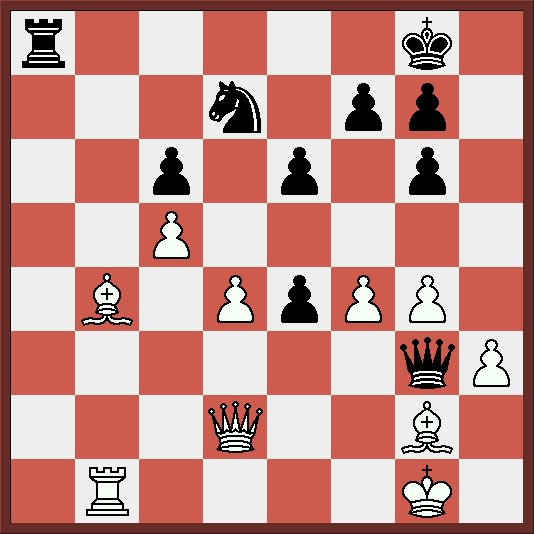
Two bishops are a force, particularly versus a lone knight, and after 35.Qe1 Qxf4 36.Qxe4 Black could have resigned. But the tension of the final round, the outcome at stake and time trouble made Marina play passively during the next few moves, while Anastasia managed to mobilize her pieces to the maximum.
35.Re1?! Nf6 36.Qf2!?
A cunning provocation 36...Qxf2+? 37.Kxf2 Nd5 38.Bd2 Ra2 39.Re2 Rxd2 40.Rxd2 e3+ 41.Ke2 exd2 42.Bxd5! exd5 43.Kxd2 Kf8 44.Kc3 Ke7 45.Kb4 Kd7 46.Ka5 Kc7 47.Ka6, and White would have won the pawn endgame. But Travkina is on her guard so far.
36...Qb3! 37.Bd2 Ra2 38.Re2?!
38.Bf1! is objectively much stronger, but Nechaeva set up a second trap right as I was watching it. She placed her rook on e2 with a movement that was not very confident. And then, when victory was so close, Anastasia believed her.
38...Rxd2??
The strong 38...Nd5! would have set the most challenging tasks for White in time trouble. 39.Rxe4 Qd3 40.Re2 Nxf4 is bad, 39.Qf1 f5 is pointless, 39.Bc1 e3 40.Qf1 Rxe2 41.Qxe2 Qc3 doesn't please the eye either, and the most reliable 39.Bxe4 Qd1+ 40.Re1 (40.Kh2? Nc3) 40...Qxd2 41.Qxd2 Rxd2 42.Bxd5 only saves the game for White. But how about winning back a piece, and then "Devil's tandem", the queen plus the knight, will start threatening the white pawns? Alas, it proved to be an illusion.
39.Rxd2 e3
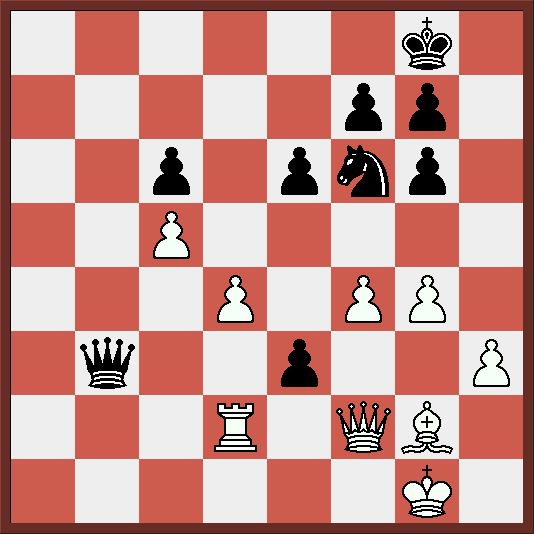
40.Qf3!, and the pin along the third rank allows White to keep her rook: 40…Nd5 41.Re2, 2-2, and Yugra took the gold.
Russia's Team Rapid Championship (women): 1. Yugra ― 10 out of 12 (Pogonina – 4.5 out of 6, Mkrtchian – 4 out of 6, Nechaeva – 5 out of 6, Kovanova – 4 out of 6), 2. ShSM Moscow – 9 (Kovalevskaya – 4 out of 6, Pustovoitova – 4.5 out of 6, Vasilevich – 3.5 out of 6, Gvanceladze – 4.5 out of 6), 3. VIVO (Bodnaruk – 4.5 out of 6, Ovod – 2 out of 6, Travkina – 2.5 out of 6, Belenkaya – 5 out of 6) – 8, 4. Tyumen – 7, 5. Ladya – 6, 6. Tavrida – 2, 7. Anatoly Karpov's School (Moscow) – 0.
The closing ceremony was crowned with a small cocktail party with champagne as well as the handout of prizes in cash. In our age of ever-delayed money transfers, this put everyone into a festive mood. In fact, the Zhemchuzhina tournament itself was a week of real chess feast!
Photos by Vladimir Barsky









